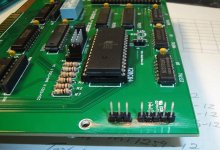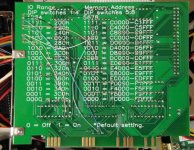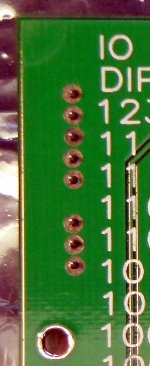I read the start of the thread but i could not figure out how your XT ide bios is working, is this a replacement bios for mothercards with ide?
First and foremost, it's a BIOS for the XTIDE controller card. I'm surprised you've not heard about it.
http://www.wiki.vintage-computer.com/index.php/XTIDE_project
However, the BIOS can easily be changed to support 16 bit IDE controllers too. The zip file containing the BIOS images have both XT and AT (8 bit and 16 bit) BIOS images.
But my XT have an ADP50L idecontroller could your bios replace the bios on the ADP50L?
I know I did a disassembly of that controller's BIOS, but I don't remember if that's the one that uses memory mapped IO, or standard IO. I think it was memory mapped, thus the universal BIOS would *not* work on that card. The source code is available though, so it could be modified to work.
Please note I could be totally wrong about the ADP50L.
I also have an 8-bit networkcard with empty socket but the connector is on the ADP50L?
That's a perfectly fine solution, in fact, it's a great solution for IDE controllers that are on the motherboard (on the AT based machines-very few XT machines have onboard IDE)
You would need to disable the BIOS on the ADP50L and put the XTIDE BIOS on a chip and put it in the network card. I've done this on a 386 machine of mine with a 3com NIC and an old promise IDE controller.
Could your XTide bios be of any use for me using bigger CF on ide port?
Right now i think my ADP50L support up to 520 MB using ide to CF converter.
Yes. This bios supports drives up to 137GB, although DOS is only going to see 8.4G of it. Either way, that's more than enough! :D



